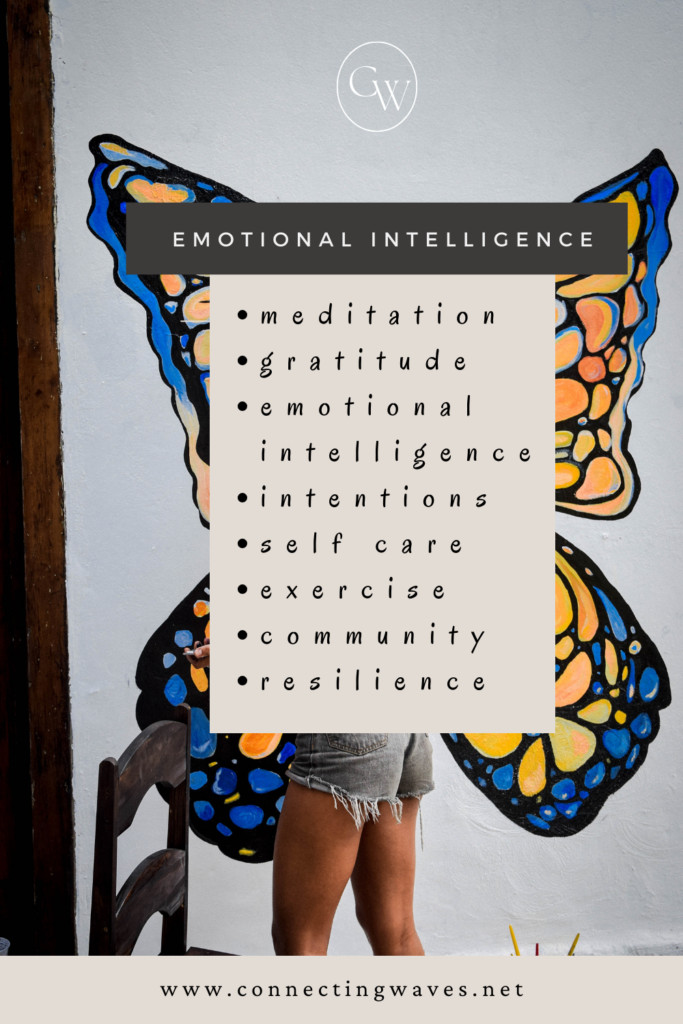In our ongoing search for happiness, we often wonder: Is it something we can control, or is it just a mix of luck and fate?
The debate on happiness revolves around whether it is primarily influenced by external factors, often considered beyond individual control (destiny), or if personal choices and mindset play a significant role in determining one’s overall sense of well-being.
Some argue that external circumstances, life events, and genetic predispositions heavily influence happiness, suggesting that individuals may not have direct control over these factors. On the other hand, proponents of the idea that happiness is a choice emphasize the importance of mindset, personal attitudes, and intentional actions. They posit that individuals can actively shape their happiness by cultivating positive thinking, practicing gratitude, and making choices aligned with their values.

CAN WE CONTROL OUR HAPPINESS?
The question of whether we can control happiness is complex and doesn’t have a straightforward answer. While there are aspects of our emotional well-being that we can influence, complete control over happiness may be an unrealistic expectation.
Research in positive psychology suggests that intentional activities, such as practicing gratitude, engaging in meaningful activities, and fostering positive social connections, can contribute to a more positive emotional state. Cognitive Behavioral Therapy (CBT) also highlights the role of thoughts and behaviors in shaping emotions, providing strategies to manage and improve one’s mental well-being.
However, it’s important to acknowledge that external factors, such as life events and genetic predispositions, also play a role in determining our overall happiness. We may not have control over certain circumstances, but we can influence how we perceive and respond to them.
HOW THINKING SHAPES FEELINGS
Essentially, our thoughts act as interpreters, shaping our perceptions of the world around us. When we encounter situations, our minds quickly generate thoughts or interpretations about them. These thoughts, in turn, trigger emotional reactions.
For example, if someone receives a compliment, their thought might be, “I did a great job.” This positive thought can lead to feelings of pride or happiness. On the other hand, if the thought is, “I don’t deserve this compliment,” the emotional response may be self-doubt or discomfort.
CBT suggests that by becoming aware of these automatic thoughts and examining their accuracy, individuals can gain control over their emotional reactions. Challenging and restructuring negative or distorted thoughts can contribute to more balanced and positive feelings.
Risk-Taking in the Pursuit of Joy
Amidst the dichotomy of fate and choice, we embark on a daring proposition: if there exists even a fractional opportunity for personal choices to elevate our happiness, isn’t it a risk worth taking? Drawing from the principles of CBT, we explore how embracing this notion can empower individuals to consciously shape their cognitive responses, ultimately influencing their emotional states.
Practical Steps to Psychological Well-being
Improving psychological well-being involves adopting practical and evidence-based strategies that promote mental health. Here are some actionable steps you can take to enhance your psychological well-being:
- Practice Mindfulness and Relaxation Techniques: Engage in mindfulness exercises, such as meditation or deep breathing, to bring your attention to the present moment. These practices can reduce stress and promote a sense of calm.
- Cultivate Gratitude: Regularly take time to reflect on and appreciate the positive aspects of your life. Keeping a gratitude journal, where you jot down things you’re thankful for, can shift your focus toward the positive.
- Maintain Healthy Relationships: Foster and nurture positive relationships with friends and family. Social connections are crucial for emotional well-being, providing support during challenging times and increasing feelings of belonging.
- Set Realistic Goals: Break down larger goals into smaller, achievable tasks. Accomplishing these smaller goals provides a sense of accomplishment and boosts self-esteem, contributing to overall well-being.
- Prioritize Self-Care: Take care of your physical health by getting enough sleep, eating nutritious meals, and engaging in regular physical activity. Physical and mental well-being are closely connected.
- Challenge Negative Thoughts: Use Cognitive Behavioral Therapy (CBT) techniques to identify and challenge negative thought patterns. Replace irrational or harmful thoughts with more balanced and positive ones.
- Establish Healthy Habits: Develop routines that promote well-being, including regular exercise, proper nutrition, and sufficient sleep. Healthy habits contribute to both physical and mental health.
- Seek Support: Don’t hesitate to reach out to friends, family, or mental health professionals if you’re facing challenges. Opening up and sharing your thoughts and feelings can provide valuable support.
- Engage in Activities You Enjoy: Dedicate time to hobbies and activities that bring you joy and fulfillment. Whether it’s reading, art, or sports, engaging in activities you love contributes to a positive mental state.
- Practice Resilience: Embrace challenges as opportunities for growth. Develop resilience by learning from setbacks, adapting to change, and maintaining a positive outlook even in the face of difficulties.
Remember that psychological well-being is a continuous journey, and it’s okay to seek professional help if needed. Implementing these practical steps can contribute to a more positive and resilient mindset over time.
Understanding Multifaceted Mental Well-being
It is important to recognize the nuanced interplay of internal and external factors. Integrating insights from genetics, environmental psychology, and the holistic approach of CBT, we assure you that mental well-being is a multifaceted journey. The amalgamation of genetics, environment, and personal choices intricately shapes the human experience, contributing to the richness and complexity of our emotional lives.
COM-MU-NI-TY
I can’t stress enough for the importance of community where you feel included and embraced. Also where you feel alike and understood. Studies in social neuroscience demonstrate the impact of interpersonal connections on mental well-being. By seeking support from friends, family, or mental health professionals, individuals engage in a positive feedback loop, fostering a sense of belonging and emotional resilience that aligns with both scientific understanding and CBT principles.
The Art of Choosing Happiness
The synthesis of scientific knowledge and CBT techniques offers a nuanced perspective on the dynamics of happiness. As we unravel the intricate threads of destiny and choice, we discover that while our choices may not dictate every facet of our emotional journey, they undoubtedly wield significant influence. Through the science and art of choosing happiness, we embark on a collective exploration to unlock the secrets of a more fulfilling and joyous existence.
Experience the transformative power of Cognitive Behavioral Therapy (CBT) with a dedicated professional. If you’re looking for personalized guidance and support in navigating life’s challenges, click here to schedule your 1:1 coaching session with a certified CBT coach.
Interested in unlocking the secrets of emotional intelligence? Click here to delve deeper into the fascinating world of EQ. Discover practical insights and actionable tips to enhance your emotional intelligence and navigate life’s complexities with resilience and understanding.





